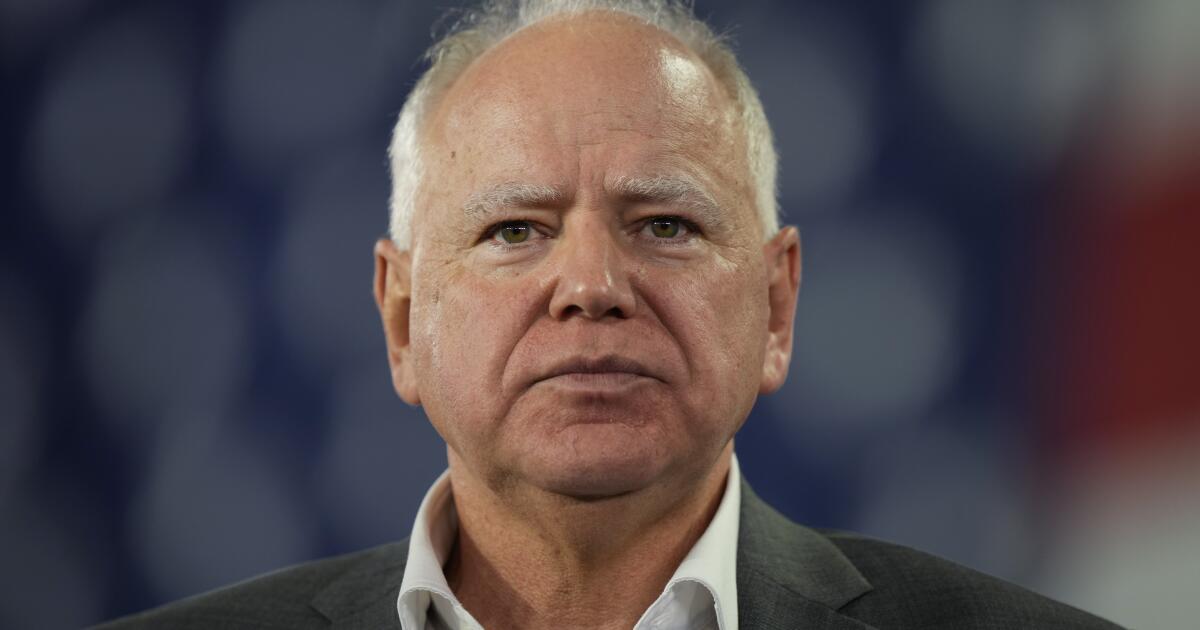Groups in Russia created and have helped spread viral disinformation targeting Democratic vice presidential candidate Tim Walz, a senior U.S. intelligence official said Tuesday.
The content, which includes baseless accusations about the Minnesota governor’s time as a teacher, contains several indications that it was manipulated, said the official with the Office of the Director of National Intelligence.
Analysts identified clues that linked the content to Russian disinformation operations, said the official, who briefed reporters on the condition of anonymity under rules set by the office of the director.
Digital researchers had already linked the video to Russia, but Tuesday’s announcement is the first time federal authorities have confirmed the connection.
The disinformation targeting Walz is consistent with Russian disinformation seeking to undermine the Democratic campaign of Vice President Kamala Harris and Walz, her running mate. Russia also has spread disinformation aimed at stoking discord and division ahead of voting, officials said, and may seek to encourage violent protests after election day.
Last month, analysts at Microsoft revealed that a viral video including a baseless claim that Harris left a woman paralyzed in a hit-and-run accident 13 years ago was Russian disinformation. More recently, a video surfaced featuring a man claiming to be a former student of Walz’s who accused the candidate of sexual misconduct years ago. Private researchers at firms that track disinformation, including NewsGuard, already have concluded the video was fake and that the man in the footage isn’t who he claimed to be.
Some researchers have also suggested the video may contain evidence that it was created using artificial intelligence, but federal officials stopped short of that conclusion, saying only that the video contained multiple indications of manipulation.
China and Iran also have sought to influence the U.S. election using online disinformation. While Russia has targeted the Democratic campaign, Iran has gone after Republican Donald Trump with disinformation as well as hacking into the former president’s campaign. China, meanwhile, has focused its influence efforts on down-ballot races, and on general efforts to sow distrust in democratic institutions.
There is no indication that Russia, China or Iran is plotting significant attacks on election infrastructure as a way to disrupt the outcome, officials said Tuesday.
Jen Easterly, director of the U.S. Cybersecurity and Infrastructure Security Agency, has said improvements to election security mean there is no way any foreign adversary will be able to alter the results.
Russia, China and Iran have all rejected claims that they are seeking to meddle with the U.S. election. Messages left with the Russian Embassy seeking comment on the Walz video were not immediately returned Tuesday.
Klepper writes for the Associated Press.
Source: www.latimes.com


